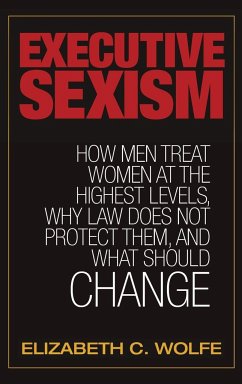In the long shadow of a presidential election rife with charges of sexist actions, this book explains how very common such behavior is among executives, why law doesn't protect victims, and how female professionals can bring change. Who do you report sexism to when the offender owns the company? "Overt and intentional sexism" against women by powerful men in politics, business, and academia and across the white-collar world in public and private institutions is common, according to author Elizabeth C. Wolfe, a conflict analysis and resolution specialist. Female executives, even at the pinnacle of their careers, remain vulnerable to their male colleagues. In this book, Wolfe details how men treat women at the highest levels and the result of their actions. Women executives from nine countries explain how their career advancement and earning potential are continuously harmed though overt sexism, sexist social behavior, and microaggressions--those damaging behaviors that are in a gray area but are not legally actionable. She further examines why law does not protect these women: sexism, like racism, is a way of thinking and so cannot be legislated. Each "-ism" has legal protections against documentable actions, but ways of thinking, socializing rituals, and microaggressions are not actionable by law. Wolfe details the minds of sexists and describes how sexism is "socialized," and then explains how to name each sexist behavior, address it, and take action to stop it.
Hinweis: Dieser Artikel kann nur an eine deutsche Lieferadresse ausgeliefert werden.
Hinweis: Dieser Artikel kann nur an eine deutsche Lieferadresse ausgeliefert werden.








